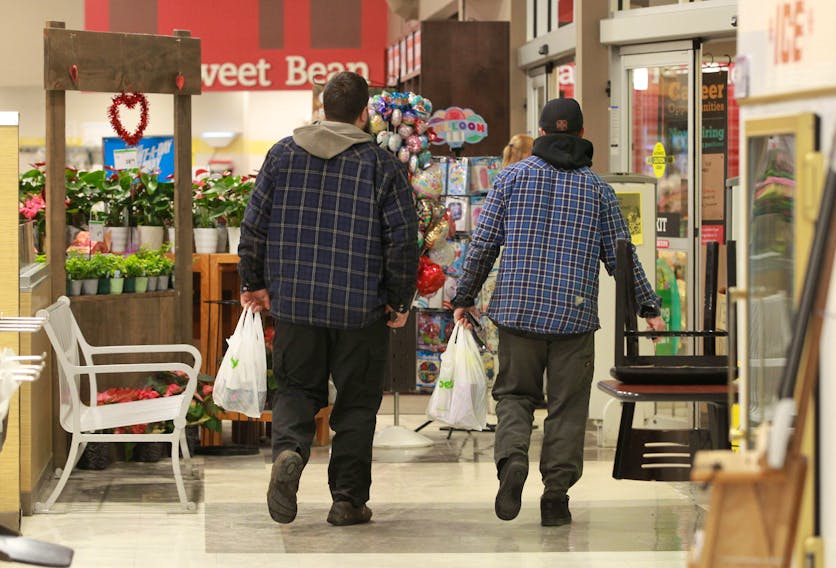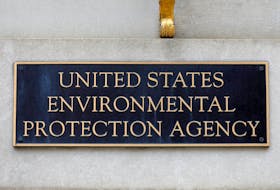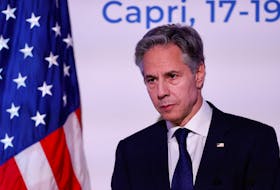Plastics are so integrated into the food supply industry that there's a lot more to consider than just banning single-use plastic bags at the checkout.
Sylvain Charlebois, director of the Agri-Food Analytics Lab at Dalhousie University, said getting rid of plastics in general will be difficult.
"The biggest challenge when it comes to plastics in the food industry is packaging, by far," Charlebois said on Friday. "It's not even close. And that is a big one, considering the volume and considering the complexities of food packaging.
"Plastics have kept food prices lower, have kept food safe, have extended the shelf life of many products, have kept products fresher and the quality has been higher."
Sobeys grocery stores across the country are eliminating single-use plastic bags at the checkout at the end of January, and Nova Scotia will enact legislation on Oct. 30, 2020 to ban the bags throughout the province.
It's not that Charlebois thinks it shouldn't be done - he said the bags ban is a good decision - but to actually change practices without affecting food prices would be extremely hard because current alternative technology is expensive compared to plastic.
"It's readily available, it's cheap, it's everywhere, so we are addicted to plastic, really," he said.
"So to get rid of that from a food safety perspective, from a food security perspective, the industry is facing some major headwinds. But the one thing that I've noticed in recent months is that companies are starting to talk to each other, so grocers are talking to processors, they're trying to actually figure things out, because they know that they can't do everything on their own."
Andrew Murphy, executive director of the Department of Environment, said the ban continues the province's "leadership role in waste management."
While it starts with bags, other plastic products have been considered for the future, he said.
"The legislation does provide the department with the authority to look at other single-use products, but right now, we're starting with plastic bags," Murphy said. "Right now, there is also a national effort to look at single-use plastics, and you may be aware the federal government has an action plan to deal with single-use products, so we're certainly following that and encouraging them in that effort."
For pet owners wondering what the provincial ban will mean for their responsibility to clean up after their animals, the legislation should not affect them much, he said.
"Currently, you can purchase those little baggies that are for that purpose - for picking up cat poop and dog poop - you can buy them at various retail outlets, pet stores and that sort of thing. Those will continue to be available, they're not impacted by this ban."
For Marla MacLeod, director of programs at the Ecology Action Centre, the ban is welcome, as is the Sobeys decision.
"Single-use plastic bag bans are a great first step, so I would definitely applaud Sobeys in this action," MacLeod said.
But, she added, there's still a need to implement extended producer responsibility to meaningfully tackle plastic waste.
"That would require manufacturers to take care of their share of plastic waste by being responsible for it, for the entire lifetime of the product," she said.
"Government has a big role to play in kind of setting the tone and saying 'Alright industry, you've created this plastic or whatever materials you're creating, and you're responsible for its entire lifetime. You've created it but you're responsible for cleaning it up.' And that would help spur innovation. And that is what we want to see, is less packaging, or in many cases no packaging."
The next step will require an overall shift in thinking about packaging and how we shop, MacLeod said.
Charlebois's lab conducted a study on single-use plastics and consumer perceptions, with the results released in the summer. The study found that 87.2 per cent of respondents consider environmental impacts caused by single-use plastic food packaging to be important and 89.8 per cent of respondents believe plastic packaging should be changed to green alternatives but not at additional cost. Only 37.7 per cent of respondents are willing to pay more for an item with bio-degradable packaging while 52.9 per cent would accept paying a government tax to disincentivize consumption of single-use plastic food packaging, the study found.
It seems suppliers and manufacturers weren't ready for the storm when public opinion moved from brewing to full-on tempest.
"I think people want sustainability and they want good environmental stewardship until they have to pay for it," Charlebois said. "It becomes a separate issue. It becomes a different problem. So I think we have to move but we can't move too quickly."
The food industry moves at a glacial pace, he said.
"Absolutely, some of the practices that we've been following the last few decades are just not sustainable but you need to give it time so the economics can follow or else you're just going to disenfranchise a lot of people who just can't afford it."









